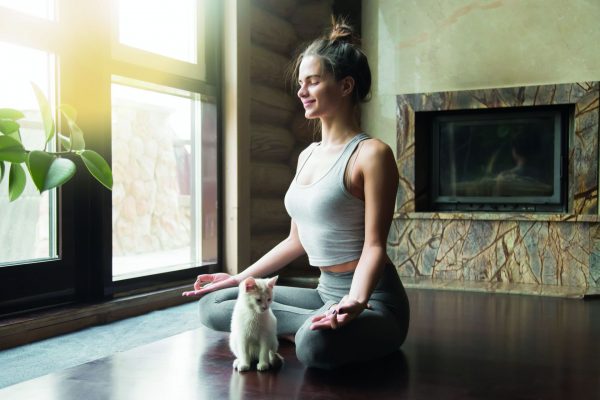Relaxation Techniques to Reduce Anxiety
Anxiety is a common problem these days, affecting millions of people worldwide. Fortunately, there are several relaxation techniques that can help reduce the symptoms of anxiety and promote a sense of calm and well-being. In this article, we will explore some of these effective techniques.
Deep Breathing
Deep breathing is a simple but powerful technique that can help calm the mind and relax the body. To practice this technique, find a quiet and comfortable place. Close your eyes and breathe deeply through your nose, filling your abdomen with air. Then, exhale slowly through your mouth, releasing all the air. Repeat this process for a few minutes, focusing only on your breathing.
Meditation
Meditation is an ancient practice that has been used to reduce stress and anxiety. There are different meditation techniques, but one of the simplest is mindfulness meditation. To practice it, sit comfortably, close your eyes, and focus on your breathing. Observe the thoughts that arise but do not engage with them. Just let them pass, always returning your attention to your breath.
Stretching Exercises
Stretching exercises can help relax tense muscles and relieve anxiety. Try doing some simple stretches, such as touching your toes or stretching your arms above your head. Hold each position for a few seconds and breathe deeply while stretching. These exercises can be done anywhere and at any time, whenever you feel anxiety rising.
Yoga Practice
Yoga combines physical exercises, breathing techniques, and meditation, making it a complete practice for reducing anxiety. There are different styles of yoga, but they all focus on the connection between the body and mind. Regular yoga practice can help increase flexibility, strengthen muscles, and calm the mind, thus reducing anxiety symptoms.
Therapeutic Writing
Therapeutic writing is a technique that involves freely writing about feelings and thoughts, without worrying about grammar or sentence structure. This practice can help release repressed emotions and promote greater self-awareness. Take a few minutes out of your day to write in a journal or notebook, expressing everything you are feeling. This technique can be especially useful for dealing with anxiety.
Aromatherapy
Aromatherapy uses essential oils to promote relaxation and relieve anxiety. Some essential oils known for their calming properties are lavender, chamomile, and sandalwood. You can use an aroma diffuser, take a bath with essential oils, or even apply a few drops on a handkerchief and inhale the aroma. Remember to choose quality essential oils and follow the usage instructions correctly.
Physical Exercise
Regular physical exercise is one of the best ways to reduce anxiety. During exercise, the body releases endorphins, chemicals that promote a sense of well-being. Additionally, exercise helps distract the mind from anxious thoughts and improves sleep quality. Choose an activity you enjoy, such as walking, running, swimming, or dancing, and make it part of your routine.
Try these relaxation techniques to reduce anxiety and find out which one works best for you. Remember that each person is unique, so it may be necessary to test different approaches until you find the one that best suits your needs. If anxiety persists or worsens, do not hesitate to seek help from a mental health professional.

